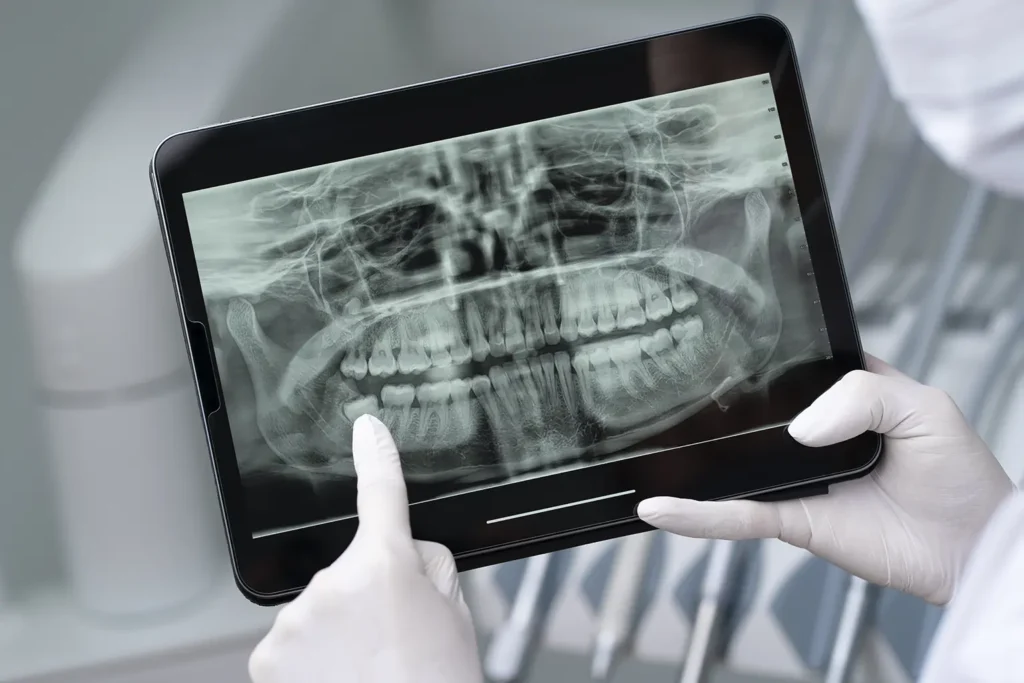
Wisdom teeth, also known as third molars, are often a topic of discussion in dental health due to their potential to cause complications. However, the conversation usually revolves around oral health issues like crowding, impaction, and infection. But did you know wisdom teeth can also have implications for your heart health? At Legacy Smiles, we are committed to providing comprehensive information to help you maintain both a healthy smile and a healthy heart. In this article, we’ll explore the connection between wisdom teeth and your heart and offer tips on caring for them if they haven’t been removed.
Are Wisdom Teeth Connected to the Heart?
Are wisdom teeth connected to the heart? The answer lies in understanding the broader implications of oral health on overall well-being. The mouth is a gateway to the body, and poor oral health can lead to systemic health issues, including heart disease.
The Mouth-Body Connection
The mouth houses a diverse community of bacteria. While many of these bacteria are harmless or even beneficial, some can cause infections and inflammation. When oral hygiene is neglected, harmful bacteria can proliferate, leading to dental problems such as gum disease (periodontitis) and tooth decay. These conditions can create pathways for bacteria to enter the bloodstream, potentially causing systemic health problems.
Gum Disease and Heart Health
Gum disease is a primary concern when it comes to the connection between oral health and heart health. Research has shown that people with gum disease are at a higher risk of developing cardiovascular disease. The inflammation caused by gum disease can contribute to the buildup of arterial plaque, which can lead to heart attacks and strokes.
Due to their location at the back of the mouth, these teeth can be difficult to clean properly. This makes them more susceptible to infection and gum disease, which in turn can affect your heart. Inflammation and bacteria from infected teeth can spread, contributing to systemic inflammation and increasing the risk of cardiovascular disease.
Impacted Wisdom Teeth and Infections
Impacted wisdom teeth are those that do not fully emerge from the gums. They can grow at odd angles or remain trapped beneath the gum line. Impacted wisdom teeth are prone to infections, which can cause significant pain and swelling. If the infection spreads, it can lead to serious health complications, including heart issues.
When bacteria from an infected tooth or gum tissue enter the bloodstream, they can travel to the heart. This can cause a condition called endocarditis, which is an infection of the inner lining of the heart chambers and valves. Endocarditis can be life-threatening if not treated promptly.

Caring for Wisdom Teeth to Promote Heart Health
Maintaining healthy teeth, including wisdom teeth, is crucial for overall health and well-being. Here are some essential tips if they haven’t been removed:
1. Maintain Good Oral Hygiene
Good oral hygiene is the cornerstone of dental and heart health. Brush your teeth at least twice a day with fluoride toothpaste and use a soft-bristled toothbrush. Don’t forget to brush your wisdom teeth, as they can be challenging to reach and clean. Floss daily to remove food particles and plaque from between your teeth and along the gum line. Consider using an antimicrobial mouthwash to reduce bacteria in your mouth.
2. Schedule Regular Dental Check-ups
Regular dental visits are crucial for monitoring the health of your wisdom teeth and overall oral health. Your dentist can detect early signs of gum disease, tooth decay, and other issues affecting your teeth. Professional cleanings can help remove plaque and tartar that regular brushing and flossing might miss.
3. Monitor for Signs of Infection
Keep an eye out for any signs of infection or complications with your wisdom teeth. Symptoms of an infected wisdom tooth include pain, swelling, redness, and difficulty opening your mouth. If you experience any of these symptoms, contact your dentist immediately. Early treatment can prevent the infection from spreading and causing more serious health problems.
4. Maintain a Healthy Diet
A balanced diet is essential for maintaining healthy teeth and gums. Consume foods rich in vitamins and minerals, such as fruits, vegetables, whole grains, lean proteins, and dairy products. Limit your intake of sugary and acidic foods and beverages, as they can contribute to tooth decay and gum disease. Drinking plenty of water also helps keep your mouth clean and supports saliva production, which is essential for neutralizing acids and protecting your teeth.
5. Avoid Tobacco Products
Smoking and using other tobacco products can significantly increase your risk of gum disease and other oral health issues. Tobacco use also has a detrimental effect on your heart. Quitting tobacco can improve your oral and overall health, reducing the risk of infections and cardiovascular disease.
6. Manage Stress
Chronic stress can negatively impact your teeth and heart. High stress levels can lead to teeth grinding (bruxism) and neglect of oral hygiene. Incorporate stress-reducing activities into your daily routine, such as exercise, meditation, yoga, or hobbies you enjoy. Managing stress effectively can improve your overall well-being and contribute to healthier teeth and heart.
Understanding the Risks of Not Removing Wisdom Teeth
While many people have their wisdom teeth removed as a preventive measure, some individuals retain them without any issues. However, it’s essential to understand the potential risks of not removing them, especially if they are impacted or prone to infection.
Crowding and Misalignment
Wisdom teeth can cause crowding and misalignment of the other teeth if there isn’t enough space in the jaw for them to emerge properly. This can lead to bite problems, difficulty cleaning teeth, and an increased risk of tooth decay and gum disease. In turn, these issues can impact overall oral health and potentially contribute to systemic health problems.
Cysts and Tumors
Impacted wisdom teeth can sometimes lead to the formation of cysts or tumors. These growths can damage the surrounding teeth, jawbone, and nerves. While rare, these complications can be serious and may require surgical intervention.
Repeated Infections
As mentioned earlier, wisdom teeth are more susceptible to infections due to their location and difficulty in cleaning. Repeated infections can weaken the immune system and create ongoing inflammation, which can have negative effects on heart health.
Conclusion: A Holistic Approach to Health
The connection between wisdom teeth and heart health highlights the importance of taking a holistic approach to your well-being. At , your trusted Grand Ave dentist serving the 59106, Ironwood, and Cooper Ridge communities, we believe that maintaining healthy teeth—including wisdom teeth—is essential to your overall health. By following proper oral care practices, you can protect both your smile and your heart.

